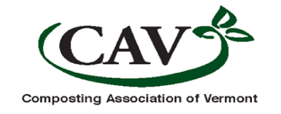The term “organic” can be confusing because it can have different meanings. Compost is chemically organic in nature, in that it is made from decomposed carbonaceous organic wastes. When the term organic is used in agriculture, it refers to farming practices that comply with the USDA National Organic Program (NOP). Organic farmers may use compost that is made with manure and other inputs from nonorganic operations, as long as prohibited materials have not been added. Examples of prohibited materials are synthetic fertilizers to boost nutrient content or biosolids, which are an excluded practice.
Composts are generally not certified as “organic” but reviewed with an on-site visit to determine that they are “suitable for organic production.” Certified organic producers must only use compost that has been reviewed and approved for use on organic farms.
Compost containing manure must meet NOP approved production methods based on temperature guidelines or it has to be treated as manure. Manure guidelines are required for applications on edible crops. There must be 90 days between application of manure and crop harvest if the edible portion does not touch the ground and 120 days if it does. NOP compost and manure guidelines were designed to ensure thorough pathogen destruction.
(Note: The FDA is currently conducting research on the application of raw manure on land used for growing produce. After they have completed this research they may establish new rules for the interval between application of manure and harvesting produce under the Food Safety Modernization Act (FSMA)
NOP compost and manure guidelines were designed to ensure thorough pathogen destruction. If compost only contains plant wastes, it may be used any time as a soil fertility building side-dressing.
Only certified organic vegetable and small fruit producers need to be concerned with NOP compost requirements on their farms.
If you want your compost to be approved for use on “certified organic farms,” contact Vermont Organic Farmers (VOF) at 802-434-3821 to schedule a site visit.
As a general practice, it is important that everyone who is making compost on their farm or for sale, understands that the material must reach a minimum of 131 degrees for (the appropriate amount of time depending on the system) for food safety and weed and plant pathogen control.
If temperature records are not kept, the compost must be treated the same as raw manure.
For additional information:
Basic Summary of the National Organic Program Manure and Manure-Compost Regulations
National Organic Program Final Rule Guidelines for Compost and Manure for Organic Operations
NOFA-New York, On Farm Compost Memo, Final Rules on Manure Use
Composting On Organic Farms, from Center for Environmental Farming Systems


